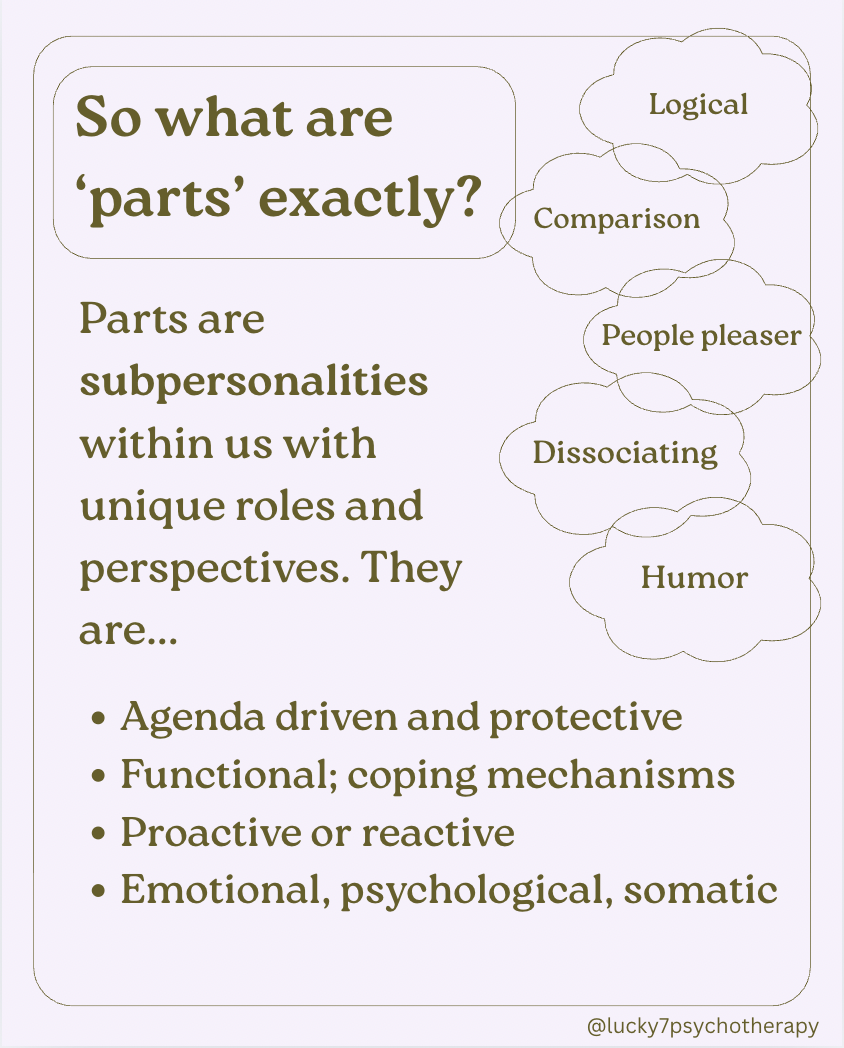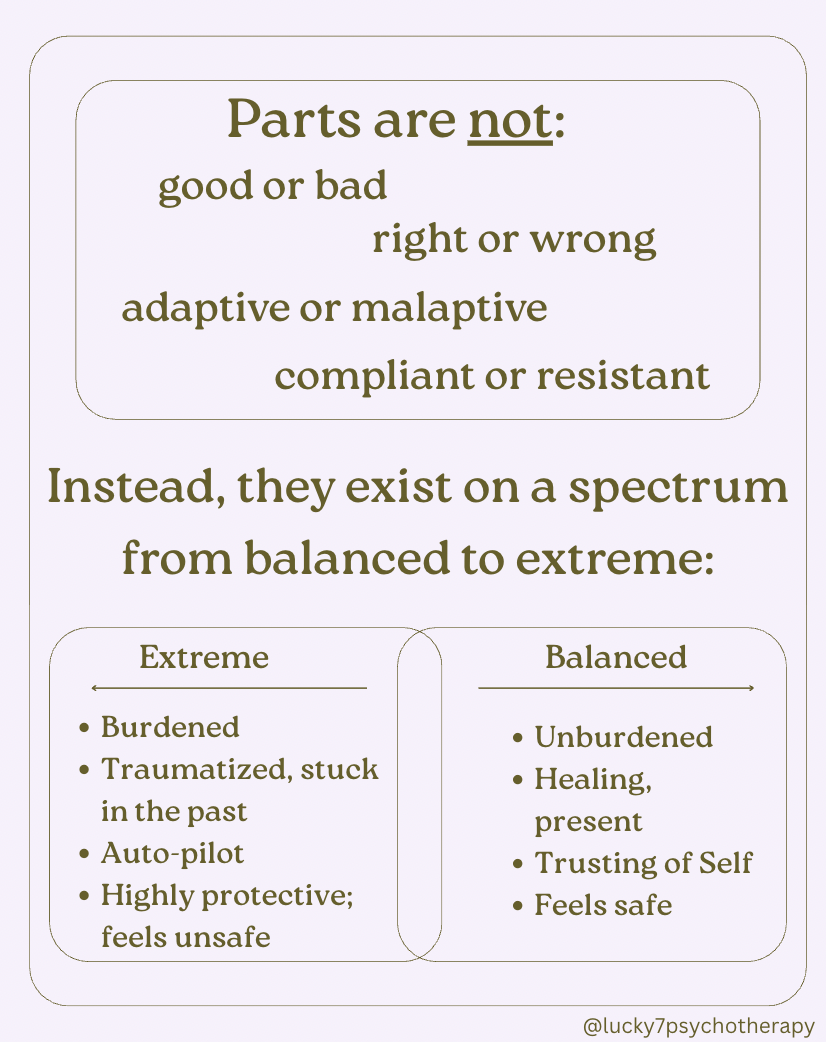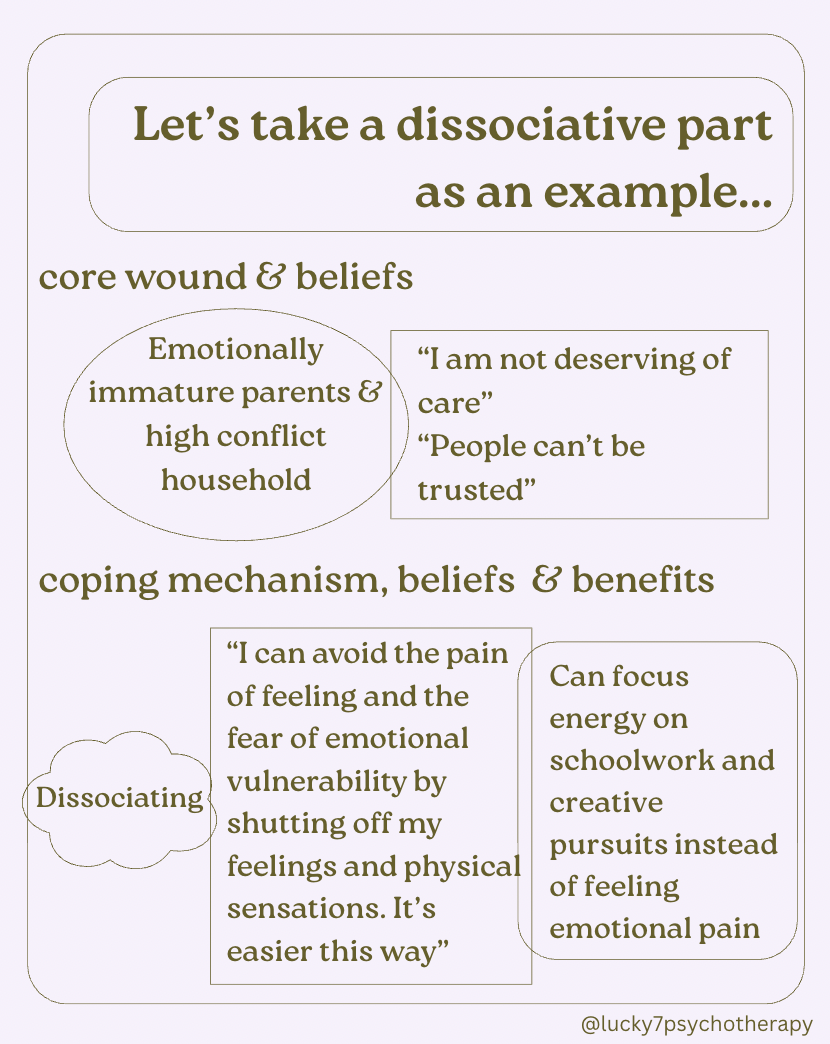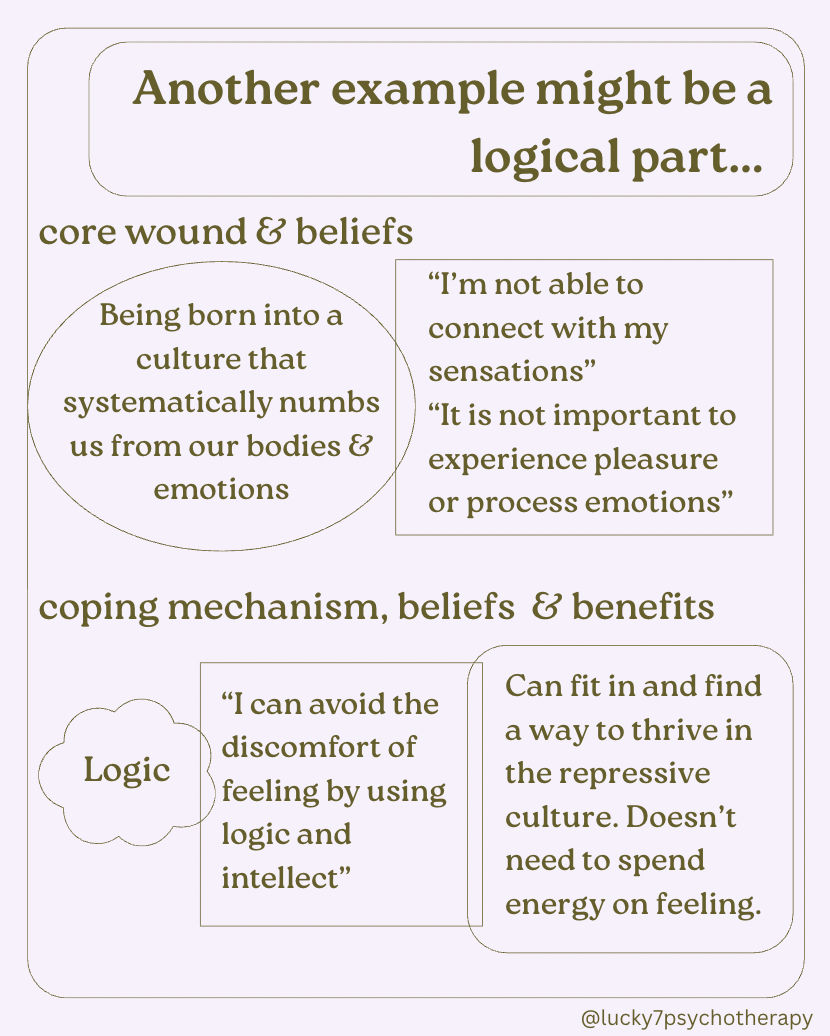What Is IFS?
A brief overview of the healing therapy modality
As the name suggests, Internal Family Systems (IFS) believes our emotional/psychological world is akin to a family system. We all know that family systems are complicated. Families often hold differing opinions and personalities. There are alliances and divisions between members. Families may label members as “good/normal” or “bad/problematic.” Our internal landscape is similar. We are complex beings. Some parts within us are labeled “good” while some parts are labeled “bad.” Some parts are allied while others are excluded.
Have you ever experienced internal conflict?
“A part of me wants...”
“but another part of me wants...”
Internal Family Systems normalizes the multiplicity of the mind. IFS knows that to have internal conflict is to be human. The model celebrates that we are all made up of many parts.
So what are ‘parts’ exactly?
Parts are subpersonalities within us with unique roles and perspectives. They are:
Agenda driven and protective
Functional; coping mechanisms
Proactive or reactive
Emotional, psychological, somatic
There are parts, and there is Self. So what is Self?
We all have Self Energy: a healing quality that can never be damaged. ‘Self’ may also be called spirit, soul, wise one, etc. Self Energy is comprised by the 8 Cs:
Calm
Confidence
Compassion
Curiosity
Courage
Clarity
Connectedness
Creativity
Self Energy can be accessed in so many different ways, including:
Friendship /Connection
Art/hobbies (“flow state”)
Reading
Nature/comforting surroundings
Being with animals
When else for you?
Many of us move through this life without feeling connected to Self. Experiences of pain, loss, and oppression create challenges to maintain connection to Self. When we do not have access to our Self, we feel lost, empty, hollow, alone. But when we feel the warmth of Self, we feel capable to handle life and its pains and mysteries.
So then is Self good? And parts are bad?
It may sound like this, but as you get to know your system using the principles of IFS, you’ll find that you need both Self and parts to thrive in this life. We are human, meaning we are filled with unique traits, gifts, and personalities. Our parts are what allows us to create, problem solve, and actualize our dreams.
IFS honors that all humans have brilliant, instinctual survival responses. Humans aren’t “self-centered” but we are incredibly self-protective.
Therefore, we understand that our parts have positive, protective intentions for us. Sometimes that can be confusing and unclear. Parts can appear to be “counterproductive” and judged based on misunderstandings.
No Bad Parts. All Parts are Welcome.
One of the core principles of IFS is that all parts are welcome.
IFS helps us understand that “problem” behaviors and thought patterns are not the problem after all. Rather, they are attempts by protective parts to manage deeper emotional pain.
What about addiction? Eating disorders? Abuse? Aren’t those things bad?
These are great questions. IFS does not condone or support harmful behaviors, to self or others. The model does not excuse harm or absolve people of accountability. However, as a therapeutic modality, it taps into the power of the 8 Cs to evoke healing. While IFS holds acceptance at its core, Self energy is not passive, apathetic, or complicit in the face of harm. Self energy helps us see things clearly and take steps toward resolve and balance. IFS helps to shed light on the deeper psychological, protective function of behaviors and thought patterns. IFS recognizes labeling things as “bad” in this context often exacerbates the behaviors and feelings; instead, we need to get to the root.
Take a look at the two examples here. As you can see, both of these parts took on roles based on their context in order to protect and survive.
It makes sense, right?
And, you might wonder, is this role needed in this way anymore?
In IFS therapy, we explore this question. We (slowly) help parts see that we may have more choice and autonomy now than we did before. In our new context, we may be able to evolve or set down these roles and actually be okay. If we can’t, can we create a new relationship to this internal experience? Can we start there?
What are the goals of IFS therapy?
Build awareness and acceptance of our systems
Unburden and heal, with time and trust
Find your own definition of balance and experience feeling capable to manage life
Specifically…
access Self Energy
develop Self-to-part relationships; befriend parts
listen and honor parts’ stories and needs
build an appreciation for the context of the past and present
accept that we cannot get rid of or force change upon parts
connect to our most authentic self
practice mind-body connection, somatic experiencing




